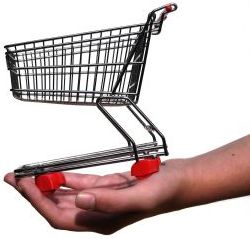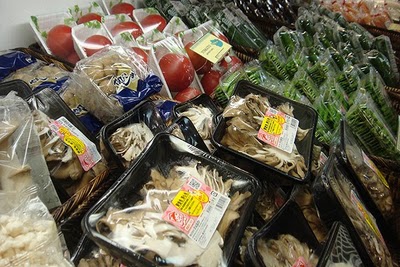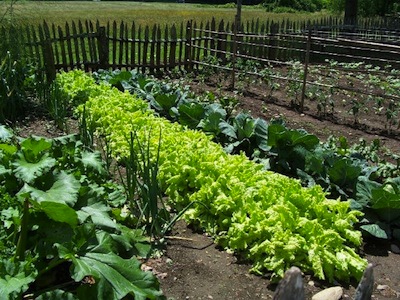How can we reduce?

The following provide you with lots of ideas to choose from. Remember no-one can do everything but everyone can do something!
- Shopping choices to reduce waste
- Handy tips to reduce your waste packaging
- Choices we can make to reduce waste at home
Shopping choices to reduce waste
There are a few good reasons why we should start to think about our shopping habits and try and reduce our packaging:
Time, Money and Petrol—If you don't buy the packaging in the first place, then you don't have to reuse, recycle or dispose of it.
Resources—The more we waste, the more resources (such as oil, wood, aluminium) that we use up. The less we buy, the longer our resources will last for our future generations and the less environmental damage will be caused by extracting them.
Use our Consumer Power—We all have influence as consumers and should use it. Make the most environmentally friendly choice when buying packaged products - if a product is not available, ask for it!
Below are some steps that you can follow to prevent and minimise your waste production:- Write a shopping list to make sure you don't come home from the shops with far more than you need. Don't be caught out by special offers.
- Take your reusable shopping bags with you to the shops every trip.
- Really think about what you're buying. Think, do I really need that?
- Buy your fresh produce loose to avoid all the bulky packaging. Weigh your vegetables individually and then put them all into one bag with the stickers on the outside.
- Buy your meat/fish/chicken from the meat counter instead of off-the-shelf.
- Increase the life of food by using your freezer.
- Avoid excess packaging on all supermarket products.
- Instead of take-away night have a left-over night instead! See Love Food Hate Waste for ideas.
- Avoid over-packaged and convenience goods. Buy in bulk where possible, it’s cheaper and uses less packaging.
- When buying detergents, always buy products that supply refills.
- Buy concentrated products that use less packaging e.g. a bottle of orange you can dilute rather than a 12 pack of small cartons.
- Buy good, durable products that last a long time, for example, kitchen pots. Always check the warranty of the product where possible.
- Use refillable and rechargeable products when possible e.g. rechargeable batteries and cameras.
- Buy products made from recycled materials. Choose products in packaging that you know can be recycled.
- Buy a vacuum cleaner with rewashable bags.
- Buy toilet rolls made from recycled paper.
- Use your consumer power properly - don’t just buy environmentally friendly products…ask your local shop manager to stock them.
- Ask for biodegradable bin liners.
- Leave packaging behind when buying electrical appliances.
Handy tips to reduce your waste packaging

Packaging is necessary to keep food fresh and uncontaminated but it is often used to make products look more substantial and attractive. All packaging has an environmental impact due to the energy used in production, the chemicals and non-renewable resources used in manufacturing and the difficulties of disposal. Careful shopping is a good way to cut down on packaging waste.
Packaging Options
Did you know? Over one third of what we put into our bin is made up of packaging, some of which we can reuse or recycle and some which we have to send to landfill.
| Shopping List | Buy | |
|---|---|---|
| 1. | Vegetables/Fruit | Loose - avoid plastic bags, trays etc. |
| 2. | Cereals | Bulk/Cardboard |
| 3. | Drinks | Glass/Bulk/Cans |
| 4. | Water (Plastic Bottles) | Remember water quality in most Local Authority regions is impeccable. Chlorine taste will evaporate from a jug of water left standing or if boiled. If in doubt install a water filter. If you must, buy water in the biggest container possible |
| 5. | Fizzy Drinks | Buy Aluminium cans and recycle/buy one large bottle |
| 6. | Eggs | Buy cardboard/free range |
| 7. | Dog Food (Tins) | Dry Dog Meal |
| 8. | Cat Food | Buy in bulk/dry cat food |
| 9. | Bread (Plastic wrap) | Fresh Bread from baker - avoid over packaging |
| 10. | Biscuits | Packaged in cardboard - avoid individually wrapped |
| 11. | Crisps | Big packets and split |
| 12. | Sweets/Chocolate | Big bars and split - avoid fun size with excess packaging |
| 13. | Pasta | Packaged in cardboard |
| 14. | Pasta Sauces | Glass jars |
| 15. | Ketchup/Condiments | Glass bottles |
| 16. | Yoghurt | Large pots/in cardboard packaging |
| 17. | Microwave Dinners | Cook large meals and freeze leftovers in take-away containers. See ni.lovefoodhatewaste.com |
| 18. | Rice (boil in bag) | Packaged in cardboard |
| 19. | Chips | Buy in bulk |
| 20. | Fish (Frozen) | Packaged in cardboard |
| 21. | Butter/Margarine | Buy in bulk (use containers for freezer storage) |
| 22. | Vegetables (Frozen) | Buy in bulk/buy cardboard |
| 23. | Cheese | Buy in bulk with re-sealable packaging - avoid excess packaging |
Choices we can make to reduce waste at home

- Buy garden furniture made from recycled plastic.
- Learn to share - if you are only going to use something a few times then borrow the product if you can and likewise share your products with your friends, family and neighbours if possible.
- If you feel that you do not need something anymore, but it could be of use to someone else, then sell the product or give it away. Remember backyard burning of waste isn't waste minimization; it releases highly polluting dioxins into the environment and is detrimental to the environment.
- Drink tap water; use a filter if you need to. There’ll be fewer plastic bottles in your bin.
- Compact cartons and bulky items before you put them into your bin.
- Buy roll on deodorant in glass instead of plastic and recycle it.
- Use cards made from recycled paper.
- Before you recycle your Christmas cards ask your local primary school if they are collecting them.
- Shred old newspapers for use as animal bedding.
- Read the newspaper on the web when possible.
- Use email instead of paper where possible.
- Give your old PC to a school or aid agency.
- Where possible, download leaflets and brochures from the internet.
- Try to keep your bin from filling up.
FACT: Every plastic bag we throw away stays buried in the ground for up to 500 years before it finally breaks down. We use around 250 million carrier bags in Northern Ireland every year. In Northern Ireland from the 8th of April 2013 you will be charged at least 5p for new single use carrier bags. The aim is to help protect the environment by cutting the number of carrier bags we use. When you need a new single use bag, the 5p you pay will help fund environmental projects.
You can find out more about the Carrier Bag Levy at www.nidirect.gov.uk/baglevy.

